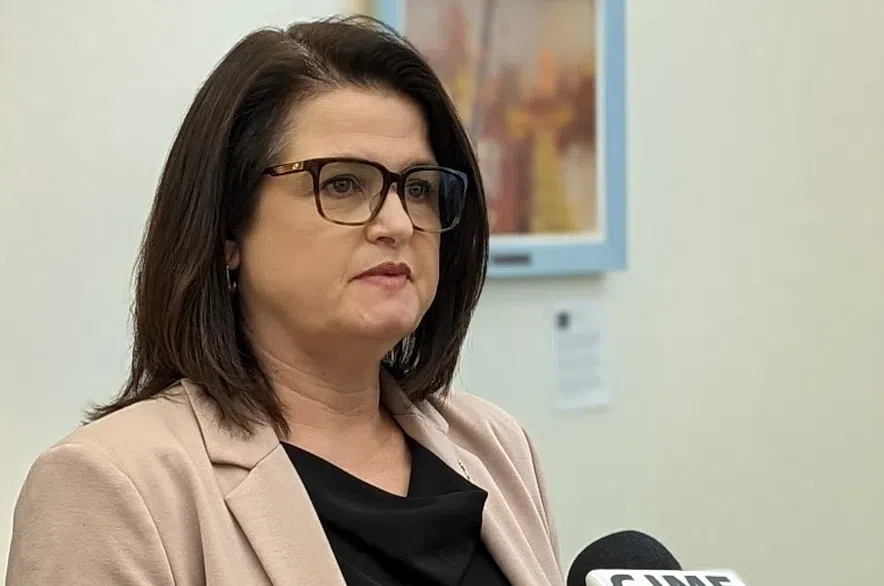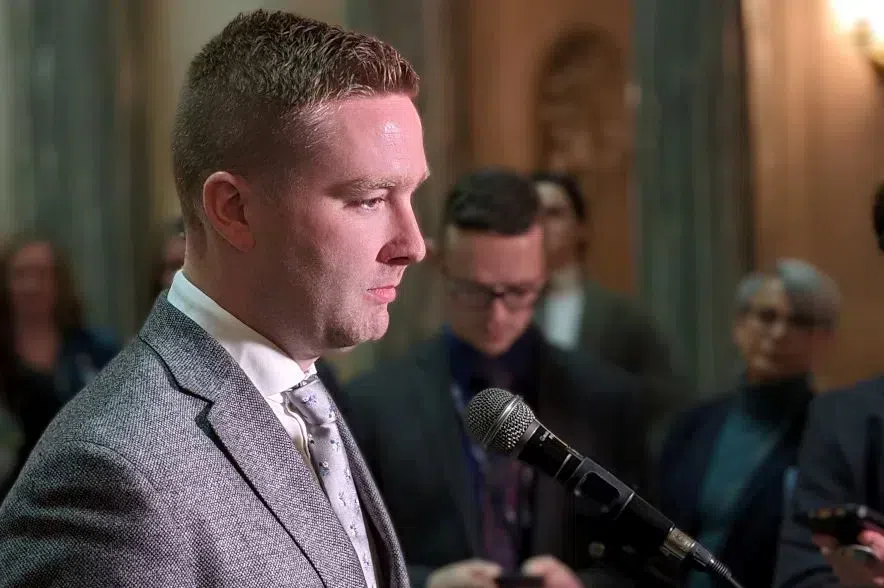It’s another decision day for Saskatchewan teachers as negotiations with the province resume.
On Wednesday and Thursday, members of the Saskatchewan Teachers’ Federation will vote on whether to give the union a mandate to implement sanctions beyond this school year, as the existing mandate expires June 30. The results of the vote will be shared with members and the public after the voting closes.
At the same time, negotiations between both sides have resumed, with talks scheduled for both Wednesday and Thursday.
“Updates to members and the media will be provided when appropriate,” the federation said in a statement.
Last week, the federation’s 13,500 members overwhelmingly voted to reject a contract offer from the provincial government. Union president Samantha Becotte said she wasn’t surprised that 90 per cent of teachers voted against the government’s proposal, which included an eight per cent pay increase over three years.
Since the dispute began, teachers have pushed for stipulations on class size and classroom complexity to be included in their contract. But despite increasing funding in the provincial budget to provide more support for teachers, Education Minister Jeremy Cockrill has so far resisted including specific measures on class size and complexity in a contract.
“I believe that local school divisions have to maintain some decision-making power in terms of how their school communities look and are structured and are staffed,” Cockrill said.
Cockrill said he would like to see a deal done as soon as possible.
“I’ve been saying it over and over again. We want to ensure predictability for students and families, and teachers as well,” he said.
“I know the government-trustee bargaining committee is working hard to figure out what we need to do on our side … I hope the teachers’ bargaining committee is doing that as well.”
Opposition leader predicts another impasse if government doesn’t budge
Carla Beck, leader of the Saskatchewan NDP, said the province needs to bring something to the table to address class size and complexity, and warned that more sanctions are likely if the province continues to hold its ground.
“If (Cockrill) is refusing to even contemplate discussing bringing class size and composition into the contract, then it’s going to be pretty quick, I’m afraid, that we’re going to we’re going to see an impasse again,” Beck said.
Previous sanctions by the federation have included single-day and rotating strikes, the withdrawal of support for extracurricular activities, work-to-rule measures, and the withdrawal of noon-hour supervision. Those sanctions cancelled several trips and big events for students.

Carla Beck, leader of the Saskatchewan NDP, has previously called on Jeremy Cockrill to resign over his handling of the dispute with teachers. (Lisa Schick/980 CJME)
“No one in this province, I think, wants to see, kids not be able to take part in track and field or graduation,” Beck said.
Beck suggested there is another option if the province can’t work class size and complexity into the agreement.
“A path out of this would be sending the issues that they can’t find agreement with at the table to an arbitrator,” Beck said. “That would be something that would ensure that the school year would be able to proceed.”
The union had previously asked the government to agree to arbitration on the issues of class size and complexity, but the government turned down the request.
Beck said she hopes Cockrill “shows some willingness to actually address those issues.”
Editor’s Note: This story was updated with new information after the Saskatchewan Teachers’ Federation announced negotiations will resume this week.







